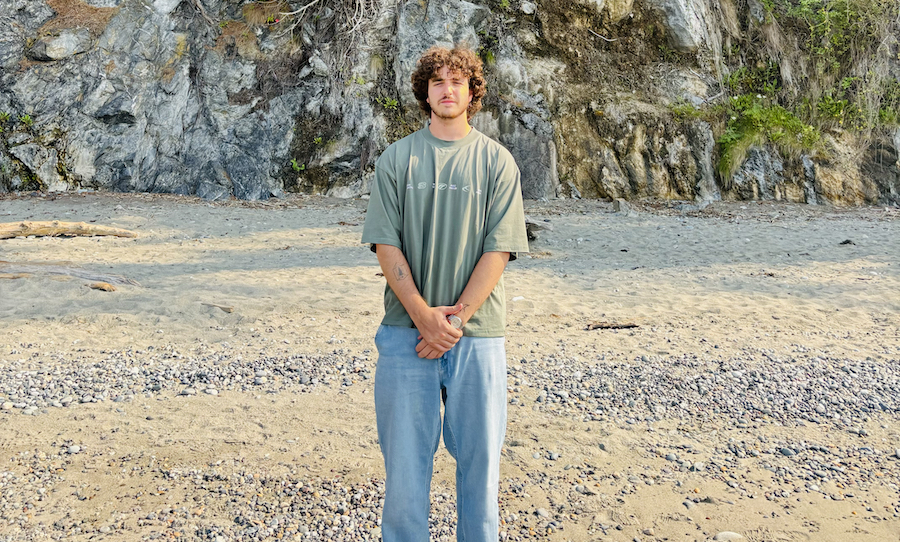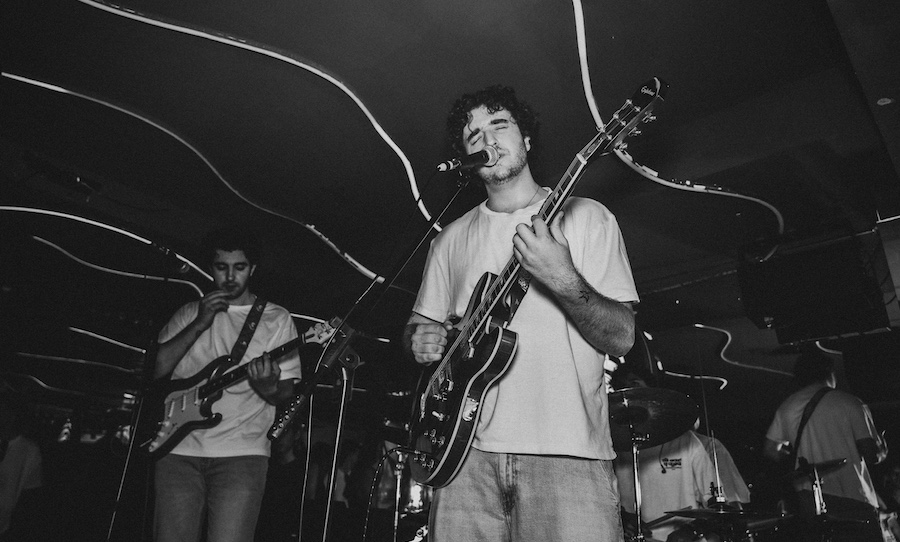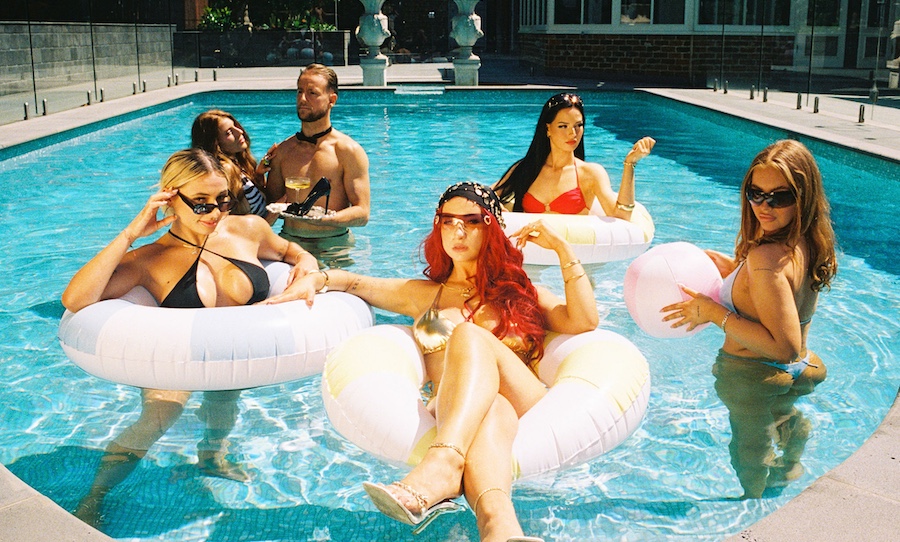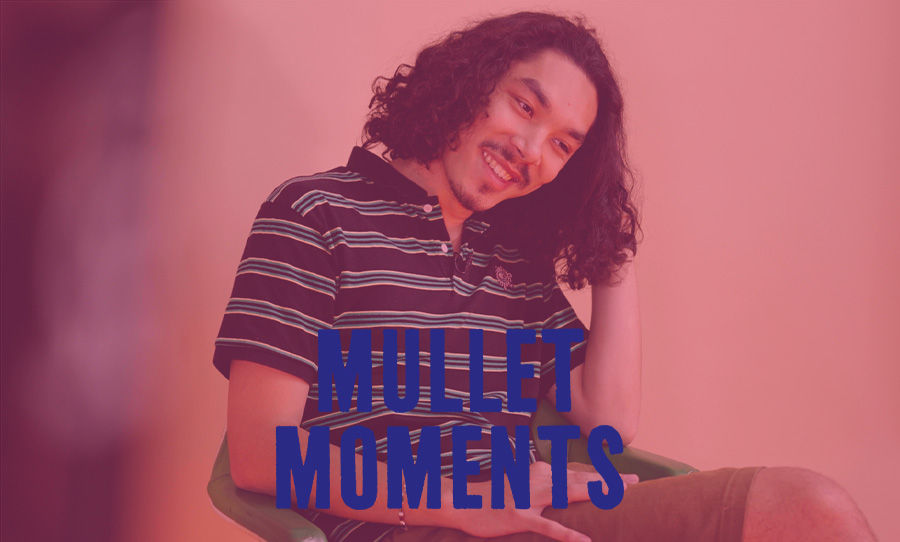Dark lyrics, Radiohead covers, and distorted guitars—inside the artist’s bold new chapter.
Madrid-born indie folk artist Soler, at just 23, crafts intimate, genre-blending music that weaves together acoustic warmth, indie-rock textures, and hints of R&B.
Drawing inspiration from acts like The Backseat Lovers, Radiohead, and Billie Marten, Soler’s songwriting, primarily in English with touches of Spanish, explores love, memory, and self-discovery with raw honesty.

His latest EP, How Did We Get Here?, chronicles the tender stages of his relationship, while the upcoming Close the Door delves into darker emotional terrain, blending Spanish lyricism with gritty, distorted instrumentals.
Split between Spain and the U.S., Soler’s live performances carry a unique energy, whether backed by a full band or stripped down to acoustic roots. Now preparing for a move to New York, he’s eager to expand his sound.
In this interview, Soler opens up about his creative evolution, the stories behind his music, and why Radiohead’s 4 Minute Warning perfectly captures his new EP’s haunting themes.
HAPPY: What have you been up to today?
SOLER: I’m in Asturias, in the north of Spain, spending time with my family and girlfriend. My days here are all about kayaking, hiking, beach time, and, of course, eating the amazing northern Spanish food.
HAPPY: Tell us a little about where you’re from, and what you love about it?
SOLER: I was born and raised in Madrid, and I spent all my childhood, teenage years, and early 20s there. It’s honestly the perfect city to grow up in—it has this balance where you can live a laid-back life, like me, or be super type‑A and always have something going on.
There’s never a dull moment. But the best part is definitely the people—warm, welcoming, and funny. No matter where I go, Madrid will always feel like home.
HAPPY: Your live shows span Spain and the U.S. Do you notice differences in how audiences connect with your music in these two regions?
SOLER: It’s definitely different. Most of my music is in English, so in Spain that can be a bit of a barrier for some listeners, and the style—heavily inspired by American, British, and Australian bands like The Backseat Lovers, Radiohead, or Spacey Jane—doesn’t fully align with what’s popular there.
That said, one of my best shows ever was in Madrid at Café La Palma—the crowd was amazing, the venue was perfect, and I had a full band behind me, which made it feel special.
In the U.S., my sets have usually been more stripped‑down, solo or as a duet, so the vibe is completely different. I’m moving to New York soon, and I’m really excited to play with new musicians there and see how that energy translates.
HAPPY: Growing up in Madrid, how has the city’s music or cultural scene shaped your sound as an indie folk artist?
SOLER: Honestly, Madrid didn’t have a huge impact on my actual sound—that came more from my parents. Every morning on the way to school they’d play music in English.
My dad is a big Dire Straits fan and my mom loves Wilco, so I grew up surrounded by that kind of sound. Even the songs I write in Spanish don’t really ‘sound Spanish’—they feel more like an American indie‑rock track with Spanish lyrics on top.
That said, Madrid has influenced me in a more indirect way. The city’s lifestyle and energy definitely shape how I approach music, and I’ve been inspired here and there by Spanish bands like Vetusta Morla or Jarabe de Palo.
Plus, most of my songs were written and composed in Madrid, so the city is in there somehow, even if it’s subtle.
HAPPY: Your songs explore love, memory, and self-discovery. Do you draw from personal experiences, or do you craft fictional narratives?
SOLER: All my songs come from personal experiences. How Did We Get Here? is basically the story of how my girlfriend and I started dating.
Sometimes, though, the process flips in a funny way—I’ll have the perfect chord progression and know exactly the kind of song I want to write, but the lyrics just won’t come. In those cases, the music takes over, and the emotion comes through the instrumentals first.
Other times, like with Farm Stop (Natalia’s Song), the lyrics lead the way, and the whole song is built around what they’re saying.
And then there are songs like Chicago, where music and lyrics carry equal weight. That balance is what keeps my projects cohesive and gives each song a strong instrumental‑lyrical connection.
HAPPY: How has your songwriting evolved since you first started releasing music?
SOLER: Well, the biggest improvements have definitely been in my vocals and guitar skills. Over time I’ve really found my vocal range and adapted my songs to make the most of it, while my guitar playing has become much more confident and expressive.
Another huge step forward has been in production. If you compare my early tracks like Roadtrip or I Wonderto my newer work, the difference in sound quality is massive.
That’s thanks in large part to my producer and close friend Álvaro Ferrer, who immediately understands what I want to express. He produced How Did We Get Here? and my upcoming EP Close the Door, and he also contributes creatively with piano and guitar ideas.
Overall, my music now has more depth, and I’m able to clearly communicate what I want to express through both the instrumentals and the vocals.
HAPPY: What idea or message are you trying to tell the listener in your upcoming EP ‘Close the Door’?
SOLER: Close the Door is about the moments in a relationship when things aren’t all pink and perfect. It caught my girlfriend and me off guard—one minute we felt untouchable, and the next life hit us with challenges we’d never faced before. Each song on the EP reflects a different phase of that mental and emotional process.
Because these were new feelings for me, I wanted the music to step into new territory too. For example, 1985 starts as a classic 12‑bar blues, but in the instrumental section it moves away from that form, building into a dynamic, evolving piece.
The title track, Cierra la Puerta (‘Close the Door’), is my personal favorite. It brings together all the EP’s themes: short Spanish lyrics about the mental spiral of overthinking every mistake, followed by a slow‑building section of distorted guitars that channels the frustration of that struggle.
The guitar work itself almost feels like it’s carrying the weight of those emotions.
HAPPY: “4 Minute Warning” is a Radiohead cover. Why did you choose this track, and how does it tie into the EP’s broader themes?
SOLER: I really love this question. There are two main reasons I chose 4 Minute Warning. First, the lyrics and overall feeling of the song fit perfectly with the themes of Close the Door.
It’s about feeling trapped in a nightmare and wanting it to end, using a kind of war‑like imagery that I imagine reflected Thom Yorke’s mental state at the time. That sense of quiet tension and unease ties directly into the emotional landscape of the EP.
The second reason is simple—I think Radiohead is the greatest band in history, and definitely my favorite. I’d love to cover all their songs, but so many of them—like Weird Fishes/Arpeggi, Jigsaw Falling Into Place, or Let Down—are untouchable for me, true masterpieces that only Radiohead should play.
4 Minute Warning, though, felt like the perfect one to reinterpret—it fits so well with the EP, and it’s one I actually have the skill to play. I’m really happy with how it turned out.
View this post on Instagram
HAPPY: Beyond the EP, what’s a dream collaboration or creative project you’d love to pursue?
SOLER: If I could collaborate with anyone, it would probably be either Billie Marten or The Backseat Lovers—both of whom I’ve been lucky enough to see live.
It’s not just their songwriting; it’s the sound they create. Everything feels so organic and balanced, like it could have been recorded live in a cabin in the woods.
Billie Marten’s voice and acoustic arrangements feel warm and homey, and she has this way of finding melodic lines I could never imagine on my own.
The Backseat Lovers are my latest obsession. The way they convey emotion through their music is unmatched for me right now.
Their instrumental buildups—like in Know Your Name or the live version of Still a Friend—hit straight to the soul, and Joshua Harmon’s vocals just lock in perfectly with the instruments.
Seeing them live was probably the most fun I’ve ever had at a concert, and I’d love to capture even a bit of that energy in my concerts. Maybe one day!
HAPPY: Lastly, what makes you happy?
SOLER: There isn’t just one thing that makes me happy. People make me happy—my family, my friends, my girlfriend—I’ve been really lucky in that sense.
But if I had to pick what makes me happiest, it’s playing music. Especially playing music with and for people—whether it’s in the studio, at a concert, or even just being in the crowd for a live show.
It might sound cliché, but I genuinely believe music reaches parts of the brain that nothing else does. If I didn’t believe that, I wouldn’t do it.I make music because it is one thing that consistently challenges and excites me.
It keeps me curious, and I couldn’t imagine what my life would be without it.



